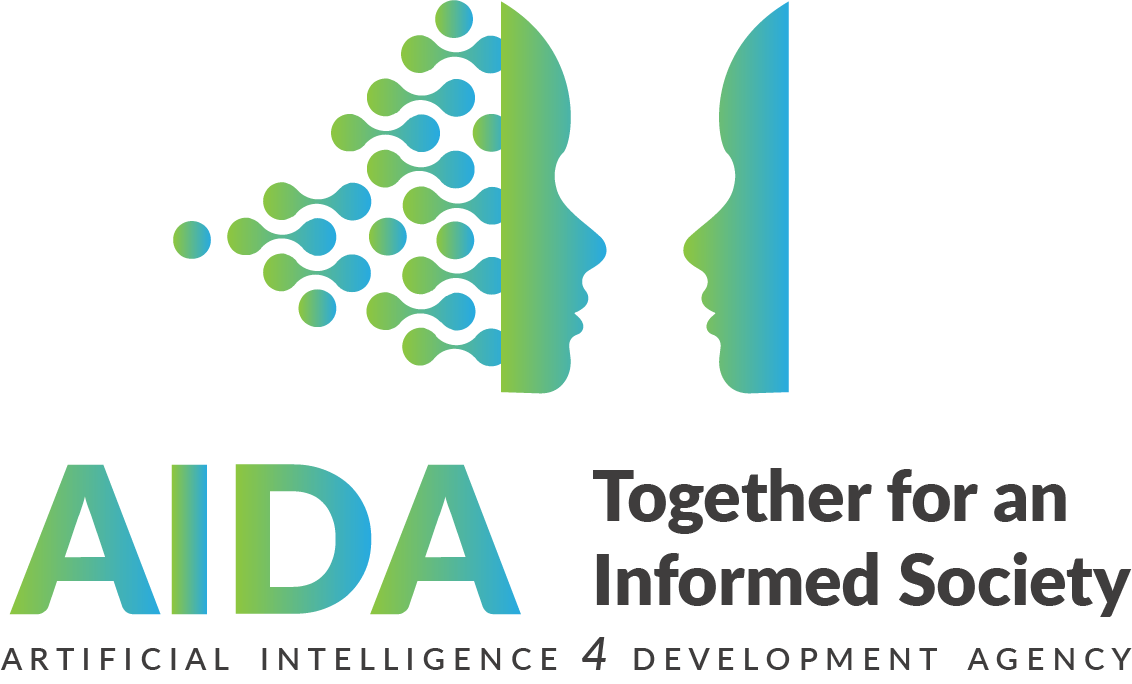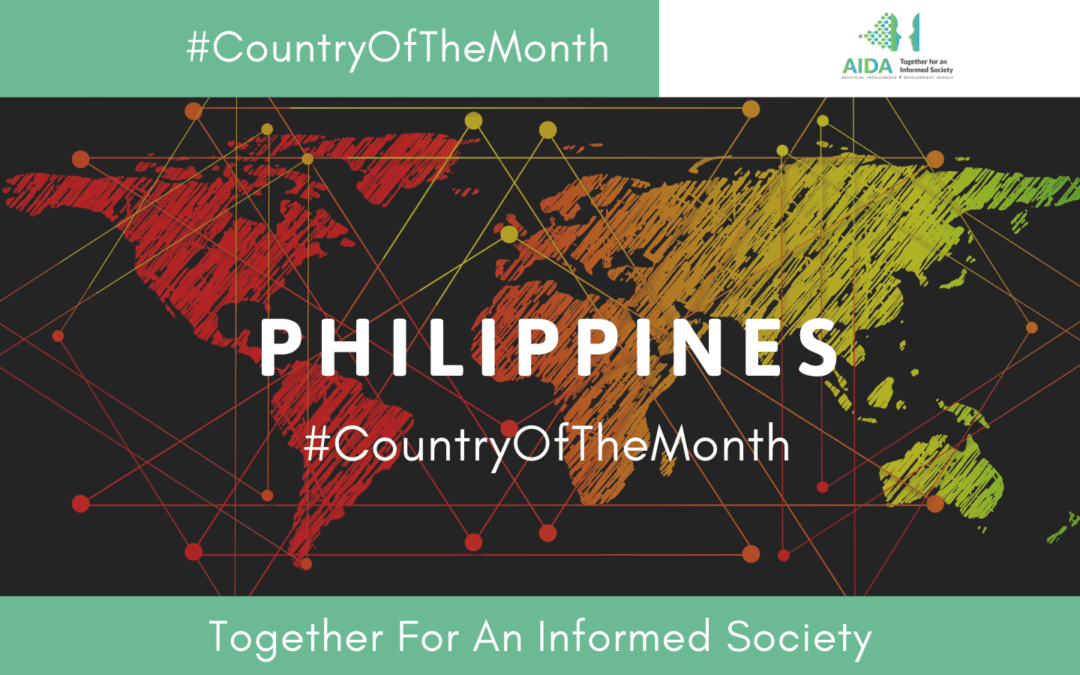AI Readiness in the Philippines
Philippine Economy
Rising urbanization, increasing middle class, and a large population of youth are just some of the factors that make the Philippines a dynamic economy in South East Asia. [1]
New cases of COVID-19, steep inflation, income losses, and ongoing containment measures have derailed the country’s early signs of economic rebound in 2021. Nevertheless, public investments and external environment recovery have kickstarted the Philippines’ economic recovery with a 3.7% year-on-year expansion at the start of the year. [2]
IT Market
The Philippine IT market, which includes emerging technologies such as Artificial intelligence, is expected to reach $9.4 billion by 2024. Additionally, the market is expected to have rapid growth due to the private sector’s increased adoption of cloud services, which makes the use of AI possible. Moreover, the government’s ambitious infrastructure development plan continues to drive demand for IT infrastructure that would support its projects under the “Build, Build, Build” program. These projects include roads, airports, seaports, evacuation centers, hospitals, schools, and government centers, among others. [19] The increased demand for IT services also paves the way for rolling out faster and more extensive data networks that would meet the demand from smartphones, online content consumption, and utilization of AI solutions. [3]
In 2018, Tractica released an article named “Artificial Intelligence Market in Asia Pacific to Grow from $6 Billion in 2017 to $136 Billion by 2025” which indicated that the market for artificial intelligence in the APAC region is expected to reach $136 billion by 2025 (from $6 billion in 2017). [4] While the 2020 pandemic’s uncertainty negatively influenced the country’s IT market due to the conservative climate of business investments, Cloud Computing and software services still gained strong momentum. In response to the pandemic, enterprise decision makers found much value in the flexibility, scalability, and ease of management of cloud application and infrastructure. [3] Thus, giving way to more opportunities for new technologies.
Additionally, organizations such as the Information Technology and Business Process Association of the Philippines (IBPAP) are creating initiatives that would accelerate development in different sectors when it comes to new technologies such as artificial intelligence, big data, and analytics. IBPAP’s 2016-2022 Roadmap for the IT-BPM industry includes providing 1.8 million direct jobs (73% will be mid-to-high-level) and a total of 7.6 million jobs which include indirect roles by 2022. [3]
AI Readiness
A 2019 report titled “Asia-Pacific AI Readiness Index” measures the AI frameworks and ecosystems present in South East Asia. Considering factors such as adoption, deployment, and support for AI technologies, the study found that the Philippines’ consumer readiness score for AI is 60.8. Businesses, on the other hand, gained a score of 33.5 and the government earned a score of 38.4. Overall, the country gained a readiness score of 44.2 in terms of AI adoption based on a scale of 0-100. [5]
In the public sector, the use of Artificial Intelligence has also been accepted at the national and local level. One such example is the Quezon City government’s use of AI in 2020 to automate tracking and monitoring of suspected and probable COVID-19 cases. [6]
In the private sector, however, the need for the workforce to keep up with AI was highlighted in a 2020 report on the AI readiness of Philippine enterprises. Many of the respondents in the study mentioned the need for education about AI and upskilling talents so that organizations can be better equipped to develop an AI work environment. [7]
Youth
A study by the World Economic Forum shows that the youth in the Philippines place high importance on activities around technology design and software programming. This may be due to the strong presence of the Business Process Outsourcing (BPO) industry. Furthermore, the study mentions that 43.7% of the youth in the country are open learning because they believe their current education and skills need to constantly be updated regarding technology. The report also indicates that 47.1% of these youth are interested in working in the Philippines rather than in other countries. [8]
According to the Government AI Readiness Index Report in 2020, while there is a young workforce in South East Asia, many countries in the region are currently ranked low in AI readiness because the digital infrastructure and AI ecosystems are still at the early stages of development. In the Philippines, for example, despite having a population of over 100 million and a median age of 24.1, the demographic context could mean either a risk or an opportunity in the era of AI. This would all depend on the response of the government. Should the Philippine government be able to train and leverage the potentially large STEM workforce, a digital divide could be avoided. [9]
In line with this, a study by the Philippine Institute for Development Studies (PIDS) estimates that the supply-demand gaps in the country’s STEM field will reach 569,903 in engineering and 13, 265 in math and statistics by 2025. [10]
Public Sector Initiatives
To ensure that the country can catch up and benefit from the rising adoption of AI, the Philippines’ Department of Trade and Industry (DTI) rolled out its Artificial Intelligence Roadmap for the country in May 2021.
The roadmap details the government, industry, and academia’s strategic tasks and projects, which include the establishment of the National Center for AI Research (N-CAIR) that is intended to be the country’s shared hub for AI research to support the Philippines’ digital transformation.
The N-CAIR is also an initiative created to encourage tech giants like Google, Amazon, and Facebook to invest their AI research and development in the country, which in turn is expected to empower workers and provide opportunities. [11]
In line with this initiative, the Philippines’ Department of Science and Technology’s council for Industry, Energy and Emerging Technology Research and Development (DOST PCIEERD), opened programs that would support the development of AI technologies in the country.
One of these programs is the Startup Grant Fund Program launched last December 2020 which was focused on AI and automation. Fourteen (14) startups were selected to receive a total of $846,906 in total funding. [12]
Furthermore, the department also initiated a free program named Smarter Philippines through Data Analytics Research and Development, Training and Adoption (Project Sparta) that is intended to upskill 30,000 Filipinos in handling big data generated by different government agencies and other entities in the country. [13]
In April 2021, DOST’s Advanced Science and Technology Institute (DOST-ASTI) also partnered with educational institutions such as University of the Philippines Mindanao (UPMin), De La Salle University (DLSU), University of the Philippines Los Banos (UPLB), and Caraga State University (CarSU) to launch nine (9) new AI R&D projects ranging from big data processing, health monitoring, to autonomous vehicles. [14]
As of February 2021, the China-Philippines joint research project on scientific and technological cooperation was launched where eight (8) projects involving the use of AI, big data, and biomedicine would be launched for agriculture, disease prevention, green energy, and virology. [15]
Private Sector Initiatives
A report by the International Labor Organization in 2017 mentioned that 49% of all employment in the Philippines has a high risk of being automated in the next couple of decades. [20] Despite initial fears about AI negatively impacting one the country’s most profitable sector – the business process outsourcing (BPO), mindsets have started to shift towards the expansion of its use and preparation of the workforce. [21] This move is partly due to the Philippine government’s vision to make the Philippines a big data processing hub given that AI is seen as the next center of excellence after BPO. [16]
Chinese cloud technology giant Alibaba has also announced its $1 billion investment on developing digital skills and supporting startups in South East Asia. Additionally, the technology company is building the first data center in the Philippines which will open by the end of 2021. The company further said that the data center will be a key differentiator against other cloud rivals such as Amazon Web Services and Google. [17]
In line with this, foreign companies with presence in the Philippines like Dyson have initiated advances like AI in the localization of their products for the Philippine market. Dyson is also currently employing 600 Filipino engineers who are working on new technologies and products for smart home technologies. [18]
Local organizations like the Aboitiz Group which has investments in power, banking, food, infrastructure, and land have also started to fully embrace the use of data-driven solutions and AI. The company has formed working groups on Data Governance, Data Science, and Innovation which will maximize and optimize the use of data science and AI solutions, knowledge, and source sharing among its business units. [22]
Kickstart Ventures Inc., a venture capital arm of another local conglomerate, the Ayala Group, have also started targeting disruptive technologies along key technology areas in machine learning, data and analytics, AI, automation. [23]
Written by Monika Ortega, AI4DA Marketing Manager
References
[1]https://www.worldbank.org/en/country/philippines/overview#1
[2]https://openknowledge.worldbank.org/bitstream/handle/10986/35690/Philippines-Economic-Update-Navigating-a-Challenging-Recovery.pdf
[3]https://store.fitchsolutions.com/all-products/philippines-information-technology-report
[4]https://www.businesswire.com/news/home/20181106005389/en/Artificial-Intelligence-Market-in-Asia-Pacific-to-Grow-from-6-Billion-in-2017-to-136-Billion-by-2025-According-to-Tractica
[5]https://www.researchgate.net/publication/351001831_Artificial_Intelligence_The_Technology_Adoption_and_Impact_in_the_Philippines
[6]https://www.pna.gov.ph/articles/1110366
[7]https://mb.com.ph/2021/06/21/senti-ai-releases-2020-philippine-enterprise-ai-readiness-report/
[8]https://www3.weforum.org/docs/WEF_ASEAN_Youth_Survey_2019_Report.pdf
[9]https://mcit.gov.eg/Upcont/Documents/Reports%20and%20Documents_18112020000_Government_AI_Readiness_Index_2020_Report.pdf
[10]https://businessmirror.com.ph/2021/09/01/the-business-case-for-investing-in-youth-development-and-stem/
[11]https://www.dti.gov.ph/archives/national-artificial-intelligence-roadmap/
[12] https://www.rappler.com/technology/innovations/dost-startup-grant-program-selected-entries-june-2021
[13]https://businessmirror.com.ph/2020/03/01/sparta-to-produce-30000-graduates-on-data-science-by-2022/
[14]https://www.dost.gov.ph/knowledge-resources/news/72-2021-news/2182-dost-pcieerd-launches-9-new-ai-r-d-projects.html
[15]https://www.manilatimes.net/2021/02/27/opinion/columnists/dost-signs-deals-with-chinas-st-ministry/845683
[16]https://www.pna.gov.ph/articles/1151550
[17]https://techwireasia.com/2021/06/alibaba-cloud-to-build-its-first-data-center-in-the-philippines/
[18]https://businessmirror.com.ph/2021/03/27/artificial-intelligence-iot-and-machine-learning-to-dominate-tech-landscape/
[19]https://www.manilatimes.net/2021/06/19/news/national/11-of-119-bbb-flagship-projects-completed-dizon/1803780
[20]https://www.bworldonline.com/will-ai-kill-the-filipino-workforce/
[21]https://www.pna.gov.ph/articles/1015136
[22]https://businessmirror.com.ph/2021/02/02/aboitiz-embraces-data-science-ai/
[23]https://businessmirror.com.ph/2021/06/29/kickstart-targets-disruptive-technologies/

